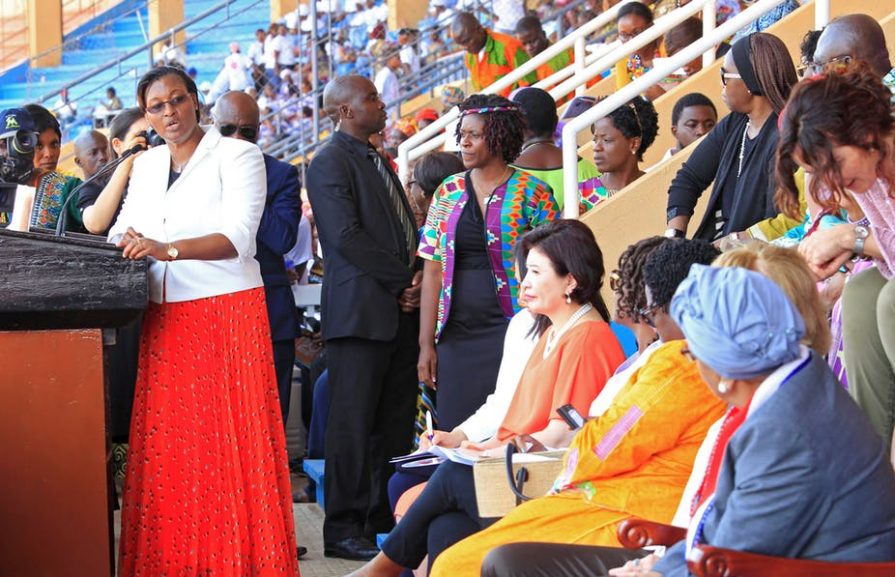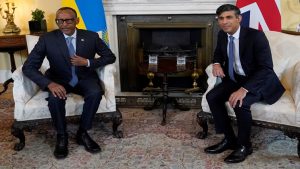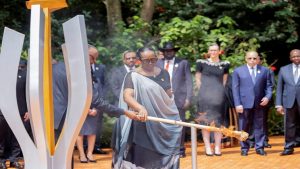How do we know whether women are achieving equitable levels of political representation? For many years, scholars have focused on women’s representation in legislatures. But in many African states power is in fact concentrated in the executive branch.
In most African countries heads of state and cabinet ministers enjoy significant discretion over resource distribution and policy agendas. This means that it’s important to pay close attention to who holds executive posts when trying to work out the role of women in a particular country.
Ethiopia and Rwanda stand out head and shoulders above other African countries. Last year both appointed cabinets with 50% women representation. This meant that they joined eight other states in the world that have achieved at least 50% women in the cabinet.
Rwanda and Ethiopia have also received attention for their gains in women’s legislative representation. They rank 1st and 18th in the world for women’s representation in national parliaments.
This makes it tempting to view women’s legislative and cabinet representation as linked or correlated. But the findings of a paper we wrote with political economist Suraj Jacob suggest it’s best to avoid making this link. We found that African countries with high levels of women’s legislative representation didn’t necessarily have high levels of women’s cabinet representation.
Our findings suggest that even in contexts where pathways to women’s legislative representation are blocked, there can still be breakthroughs in women’s cabinet representation. Such breakthroughs can influence policies.
The top 10
Our study put together data on women’s cabinet representation in all African countries from 1979 to 2010. We also used the International Parliamentary Union’s data on women’s legislative representation in African countries over that period.
In aggregate, we found that the trends for legislators and cabinet members were relatively similar. Women’s legislative representation grew from a continent-wide average of 7.2% in 1979 to 18% in 2009. Women’s cabinet representation rose from 3.5% to 18.7% in 2009.
But the aggregated data masked important country-level variation.
For each year from 1979 and 2009, we compiled two “African top 10” lists. The first list identified the 10 countries with the highest percentages of women legislators. The second list identified the 10 countries with the highest shares of women cabinet members. We found that just four countries per year, on average, appeared on both lists.
The number of overlaps ranged from two to six across the 16 examined years. But updated data continue to demonstrate such misfits. In 2017, for example, just four countries – Rwanda, South Africa, Uganda, and Namibia – appeared on both lists. The inclusion of Ethiopia, which increased women’s cabinet representation last year, would still mean that only half of the countries on the lists overlap.
In strong executive countries where women’s legislative gains are not matched by women’s cabinet gains, women MPs are likely to encounter serious barriers. On the other hand, women cabinet members in strong executive countries with male-dominated parliaments may be able to effect significant change.
The case of Ghana
Our study took a close look at trends in Ghana. The country is a laggard in women’s legislative representation. But it has achieved relatively high levels of women’s cabinet representation. We believe that women’s gains in parliament have been limited by a number of factors. These include the incremental change from military rule to democracy as well as the legislative electoral system.
In spite of this, women have had a relatively strong presence in the Ghanaian cabinet. There are numerous reasons for this. Ghana’s constitution allows the president to put together cabinets from up to 49% of members who are not MPs. In addition, the country’s repeated international commitments to gender equality appear to have influenced the appointment of women cabinet ministers.
Ghana’s autonomous women’s movement has used these commitments to pressure presidents to include women on their executive teams.
Significant policy implications
Political scientists Amy Atchison and Ian Down have shown that women’s cabinet presence matters. The larger the share of ministerial seats that women control, the more likely a state is to promote policies that improve women’s lives. Atchison and Down found that this effect is stronger than the effect of women’s share of legislative seats.
We expect it to be stronger still in cases where executive actors dominate legislatures. In addition, the symbolic effect of observing a female defence minister directing a “sea of generals” can be transformative.
That’s why keeping keep a close eye on women’s inclusion in the executive branch is important.
Recent data from across the continent show an overall dip in women’s cabinet representation. This suggests that while cabinet seats have substantial political upside, they may also be more tenuous than legislative seats. Women’s legislative gains are often locked in via quotas, but women’s presence in cabinets is often tied to the party in power and the leader of the government.
Melinda Adams, Professor of Political Science, James Madison University and John Scherpereel, Professor of Political Science, James Madison University
This article is republished from The Conversation under a Creative Commons license. Read the original article.






